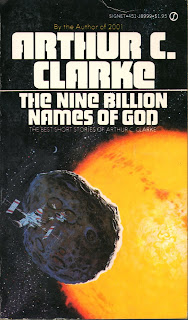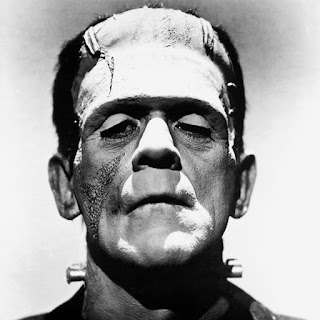The Nine Billion Definitions of Science-Fiction
Science-fiction one of the most interesting genres to discuss, personally, as it’s probably one of the hardest genres to define. It covers such a broad range of topics, with some stories and tropes often finding their roots in other genres such as Western and Horror. I think, however, one of the best descriptors of the genre is that sci-fi is “the literature of ideas”. Typically the genre deals with the human reaction to various creative and futuristic concepts such as advanced technological processes, space exploration, time travel, alternate realities, and the like. To me, sci-fi is something that you look at and just know that it’s sci-fi. That’s a sentiment I definitely share with one of Arthur C. Clarke’s most famous short stories: “The Nine Billion Names of God”.
The use of technology and the exploration of the nature of the universe within the short story evidently makes this a sci-fi tale, but the root of the story ultimately reminds me of something fantasy or even mythological. The story as a whole, like most good science-fiction, is not just focused on the technology used in the story, but humanity’s reaction to the technology. We are not reading about a computer that is churning out every possible combination of a supreme being’s name, we are reading about several doubtful scientists who are aiding in the project. We are reading about a group of people attempting to answer a question at their core of their beliefs. Many readers, like the scientists of the story, assume until the end that the project is going to be a failure.The focus of the story is on the idea of a supreme being, something you would think would be at odds with a fairly scientific based work. It’s a fantasy or mythological based idea, until the ending reveals that the monks in the story were right. You could argue that the ending could even borrow from the horror genre, as the ending of the story could be interpreted as a cliffhanger to the literal end of the universe. This speculation and the use of technology to explore that speculation ultimately makes this a sci-fi story, but the elements of other genres are definitely evident.
The use of technology and the exploration of the nature of the universe within the short story evidently makes this a sci-fi tale, but the root of the story ultimately reminds me of something fantasy or even mythological. The story as a whole, like most good science-fiction, is not just focused on the technology used in the story, but humanity’s reaction to the technology. We are not reading about a computer that is churning out every possible combination of a supreme being’s name, we are reading about several doubtful scientists who are aiding in the project. We are reading about a group of people attempting to answer a question at their core of their beliefs. Many readers, like the scientists of the story, assume until the end that the project is going to be a failure.The focus of the story is on the idea of a supreme being, something you would think would be at odds with a fairly scientific based work. It’s a fantasy or mythological based idea, until the ending reveals that the monks in the story were right. You could argue that the ending could even borrow from the horror genre, as the ending of the story could be interpreted as a cliffhanger to the literal end of the universe. This speculation and the use of technology to explore that speculation ultimately makes this a sci-fi story, but the elements of other genres are definitely evident.




Comments
Post a Comment